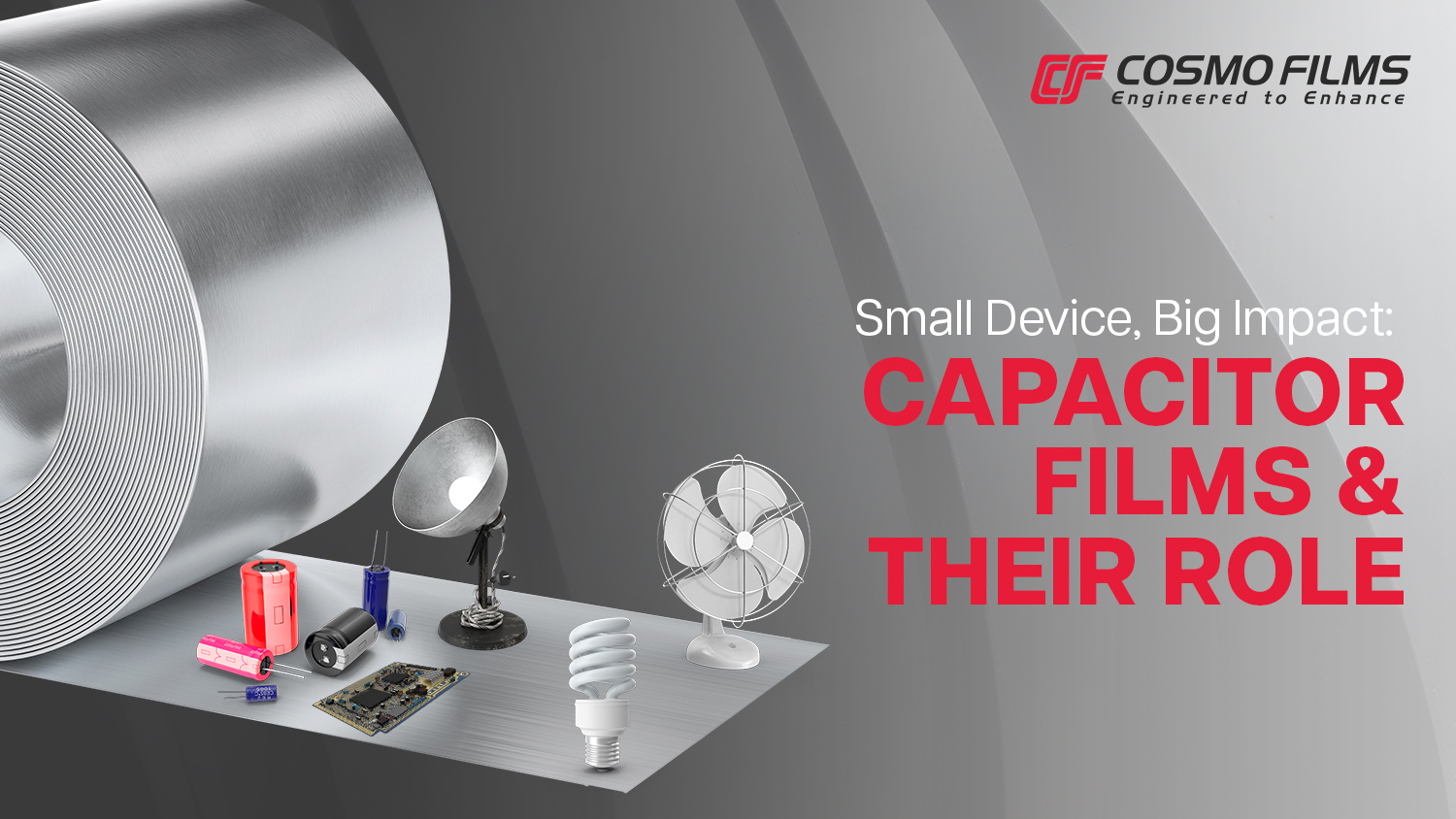Capacitor films are integral components that are pivotal for various applications across industries. These exceptional capacitor polypropylene films are foundational to film capacitor types. The capacitor films are known for their reliability and unmatched performance, making them a go-to option for several applications.
In the year 2019, the film capacitor market size was valued at USD 3.21 billion and is anticipated to reach USD 4.36 billion by 2031. Let's read the blog below to learn more about capacitor films, their market uses, and its applications.
What Is Capacitor Films?
Capacitor films are dielectric materials that are crafted to store electrical energy in a capacitor. They are ideal for various applications as they possess:
- High insulation resistance
- Low dielectric loss
- Excellent self-healing properties
The polypropylene capacitor, a film capacitor type, is widely used for its exceptional stability, reliability, and capacity to withstand high-voltage stress.
Market Use of Capacitor Films

Here are some of the market uses of capacitor films:
- Electronics Industry : In the electronic industry, capacitor films are necessary. These films are used in electronic circuits, which ensures that the devices operate efficiently. Capacitor polypropylene film stabilizes the voltage fluctuations in power supplies and reduces noise in audio systems, thereby enhancing device performance and reliability.
- Renewable Energy : Capacitor films are crucial in solar and wind power systems. They are essential to manage energy flow in inverters and converters, boosting system efficiency, and enhancing power quality. Capacitor films enable the efficient and seamless conversion of DC to AC power, ensuring smooth integration of renewable energy into the grid.
- Automotive Sector : The capacitor films are used in this sector to develop advanced electronics and electric vehicles (EVs). For EVs, the capacitor films are used in onboard chargers, inverters, and motor drives. These films contribute to the efficiency and performance of EV systems, aiding in energy storage and distribution.
- Industrial Applications : Various industries, like telecommunication and aerospace, rely on capacitor films for critical applications. These films are integral to high-frequency circuits and signal processing. Aerospace industries also use capacitor films in avionics, where reliability and performance are important.
Applications of Capacitor Films

The charge stored in a polypropylene capacitor can be consumed in several ways. Here are some common applications of the capacitors:
- Filtering: Electronic circuits use capacitors to filter out unwanted signals.
- Timing: Capacitors can create time delays in electronic circuits.
- Coupling: They can couple two stages of an amplifier together, allowing AC signals to pass through while blocking DC signals.
- Energy Storage: They can store electrical energy, which is, therefore, useful in various applications.
- Signal Processing: These are commonly used in audio and radio frequency circuits to tune resonant circuits and shape filters' frequency response.
- Power Factor Correction: They are commonly used in power factor correction.
- Bypassing: Capacitors can bypass or short out unwanted signals in a circuit.
- Tuning: Capacitors are often used in radio frequency (RF) circuits to tune the frequency of oscillators and resonators.
- Decoupling: They can decouple one part of a circuit from another, reducing the amount of electrical noise transmitted between the two.
- Motor Starting: Capacitors are commonly used in electric motor circuits to boost current when the motor is started.
- Surge Suppression: Capacitors can be used in power systems to absorb and dissipate surges and transients, protecting sensitive equipment from damage.
- Audio: They are used in many audio applications, including crossovers in loudspeakers, tone controls in amplifiers, and blocking DC signals in pickups for musical instruments.
- Sensing: Capacitive sensors use the changes in capacitance that occur when an object is brought near a capacitor to detect the presence or absence of an object.
- Discharging: Capacitors can quickly discharge stored energy, which can be helpful in high-voltage circuit breaker systems and other applications.
- Clamping: Capacitors can limit the peak voltage of a waveform, a technique known as voltage clamping.
- Charge Pumping: Capacitors can be used in charging pumping circuits to generate a higher voltage than the supply voltage.
- Lightning Protection: Capacitors can be used in lightning protection systems to provide a low-impedance path for lightning surges to follow, reducing the risk of damage to structures and equipment.
- Peak Detection: Capacitors can be used in peak detection circuits to store the peak value of a waveform for later measurement or analysis.
Capacitor films are used in industries like automotive and electronic, helping boost efficiency and reliability. The future of capacitor films, with capacitor film manufacturers continuously innovating, holds promise for more advanced and efficient capacitor film technologies.
The market uses and applications of capacitor films underscore their vital role in powering the modern world. As we navigate towards a future driven by renewable energy and advanced electronics, capacitor films will remain at the forefront, enabling progress and innovation.
For more information on capacitor films and the latest advancements in the field, contact us, “Cosmo Super” capacitor grade Films are the best film for capacitor manufacturer.
